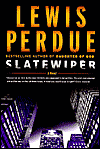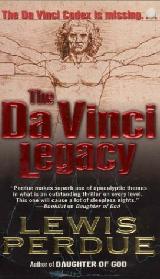Dr. Frankenstein's legacy looms larger
 There's a famous (and very old -- 1959) book by C.P. Snow called "The Two Cultures" which laments the divide between scientists and everyone else. The problems are deeper now and the essence of the scientific issues have changed greatly.
There's a famous (and very old -- 1959) book by C.P. Snow called "The Two Cultures" which laments the divide between scientists and everyone else. The problems are deeper now and the essence of the scientific issues have changed greatly.But despite the hand-wringing of every scientific generation, the problem gets worse.
The problem gets worse because scientists have tried to solve it by themselves. They have successfully created an environment where ordinary people view them as a caste apart, a priesthood of the anointed who have the theological rights to intercede between the masses and the God of science. The publishing industry has bought into this and manages to make the problem worse.
My little thread of current agonizing about this begins with a Wired Online article, "Why is There so Little Science in the Sci/Tech Section of Google News?".
That contains links to two good nanotechnology blog posts: "Five lessons in nano outreach" and,
"'Science has a serious marketing problem,' says Google founder at 2007 AAAS keynote". (AAAS = American Association for the Advancement of Science.)
What's bad about these links is that they seem to advocate spin-doctoring as a solution rather than translating the science into a form that can be understood by the whole congregation rather than just the high priests.
Now, let me tell you a little story.
Back in the middle to late 1980s, I was a consultant to technology companies. At one point, I had more than half of the divisions of Hewlett-Packard as clients. Back then, HP was a totally engineering driven company, famous for bomb-proof test equipment, engineering workstations, semiconductor simulators and so forth. They made their billions selling engineering to engineers.
Then they got a consumer bent. Maybe you think that was the HP LaserJet which broke open the entire laser printer market. Nope.
The first product they wanted to sell into the consumer/business market was the HP plotter they felt people would want to have, especially to create color charts and graphs from that new PC program, Lotus 1-2-3. This was before inkjets. State of the art for PC printing was the dot-matrix, impact printer.
The HP's plotter division in Rancho Bernardo (east of San Diego California) was my client. When I first got there, the engineers proudly showed me the heft and strength of their plotters and the torture chamber in which HP's plotters would work perfectly in subzero temperatures and those in which you could literally fry an egg if you left the frying pan in long enough. They spent hours talking about obscure engineering protocols and how those (and the torture chamber photos) were what the felt were their competitive advantages over Calcomp -- their main competitor whose plotters were significantly less expensive.
Those worked when you sold to engineers, I told them, but failed to answer the consumer "who give a shit?" test.
They listened to me because I had once been a programmer and worked as an engineer. We began to create a program which translated the technology into something that passed the "who gives a shit?" test.
They became the market leader in business and consumer products. It's also no accident that, before the 1980s were over, the LaserJet had made the transition from a massive-steel-framed behemoth that could shelter you from a nuclear attack, to a light, streamlined, consumer-friendly product.
I'd say that science in general remains mired in the same trap. The public doesn't give a shit about something that they've been led to believe they won't understand anyway. The few that press on to understand get turned off when they buy a book by a Ph.D. which is either too complicated, too flimsy and in both cases fails to address the "who gives a shit?" issue.
Phrased in less scatological terms, for the vast majority of the rapidly shrinking universe of book buyers, none of the books offers a good answer to: "Why should I care? How will knowing this make my life better or help me understand my place in the universe?"
Just as engineers are not sympatico with consumers, pure scientists will never be able to answer those questions adequately enough to bridge the divide. The alternative will be greater reliance on superstition by the general public and deepening suspicion of science and scientists. Is there any doubt here why novels and movies usually portray scientists as Faustian madmen?
Dr. Frankenstein's legacy looms larger



0 Comments:
Post a Comment
<< Home